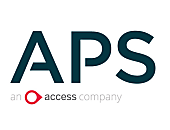Despite data being the most valuable commodity for most businesses, there’s an extreme amount of data waste occurring. Our recent survey reveals that less than 1 in 10 practices strongly agree that they are using their client and practice data to its full potential.
Much of this wastage is down to data delivery – or rather, how poorly that data is being delivered. Because there’s no value in having access to data if you can’t derive insights from it, we explore how to improve your data delivery model.
Here’s a simple question to answer: would you rather have a basic, underutilised reporting system or an indispensable analytics platform? The difference between the two is down to one factor: the effectiveness of your data delivery model. Especially in the accounting sector, immature data management is hampering decision-makers and ensuring volumes of potentially valuable data goes to waste.
Passive vs proactive methodologies
There are multiple data consumers – both internal and external – within the accounting industry. Because there are so many moving parts to consider and manage, the delivery of your data has to align with your practice’s specific requirements.
Data governance can be either passive or proactive, but too many immature systems get caught up in trying to be one or the other. It’s easy to get in the weeds about how these two methodologies compete, but ultimately with passive data governance the data quality checks come in the latter stages of the lifecycle, whereas they happen upfront – as soon as the data is collected – for proactive data management.
What does that mean for your data management strategy? Rather than trying to be one or the other, your system must be adaptable in order to get access to the best-quality data insights and subsequently use that information to deliver great business value.
The power of data visualisation
From predefined notification lists and alerts, to sets of reporting outputs that measure ongoing performance, all the items aligned with your business processes go hand-in-hand with the ability to ask questions of the data, or to automate scenario-based results to drive best practice.
But arguably even more important than this is having the technology at your hands to manage your data and deliver it in a way that is visual and interactive. Practices are starting to realise that data visualisation is incredibly important in order to derive real value from that data. So with the right data visualisation software, you can empower your team with a self-serve approach to their daily work and functions.
Being able to visualise and interact with data also creates new opportunities for collaborating, as well as mutual understanding when navigating complex scenarios – which are a given in every accounting practice.

What do you really want to get from your software?
Whether you are searching for a new platform to help visualise data or you simply want to get more value out of your existing system, there are some key questions you should be asking it:
- Who will get the most out of using data in our practice? Will the partners have high-level access to data streams, or it is more likely a specific department will manage and interact with all the data? Or perhaps everyone will have access to support their day-to-day functions and decision-making. Whatever the answer, accessing data should be easy to do and interacting with it should be user-friendly. Also remember that while some of your practice’s data will need to stay private and secure, users should be able to find what they are looking for without being hamstrung by ‘data gatekeepers’.
- How ambitious do we want the platform to be? You may be satisfied with a few dashboards and some helpful visualised data reports. Alternatively, you may want all the features in order to transform your practice and instil a total data-driven culture.
- Will data sources be navigable? Will everyone be able to explore what each metric means and how it is defined? When looking at insights or visualisations, users should have the capability to trace the source of the data and how it was generated. To achieve this, your software must have the tools to help them understand what’s behind every piece of data in a report.
Getting it right the first time
When it comes to leveraging insights from data, time is of the essence. So it’s critical that you determine your practice’s needs and then find the right software before you waste any more valuable data.
Accounting practices can easily harness and visualise their data with a solution like APS Practice IQ to ensure you understand your data, create performance reports and deliver insights that cater to all levels of the business. To find out more, request a demo today.
For a full breakdown of our entire suite of Practice Management, compliance, and partner solutions, request a full demo of our APS suite here.
APS is a product of The Access Group. We develop the software used by the best accounting firms in Australia and New Zealand to run their businesses and advise their clients.
 Login
Login










You are not authorised to post comments.
Comments will undergo moderation before they get published.